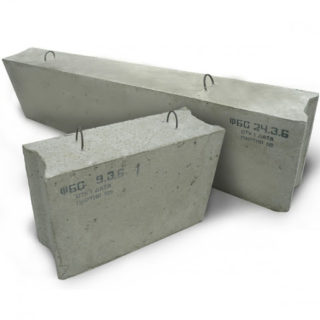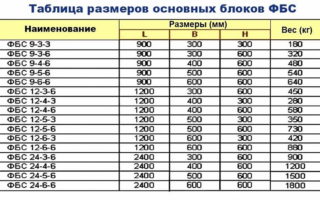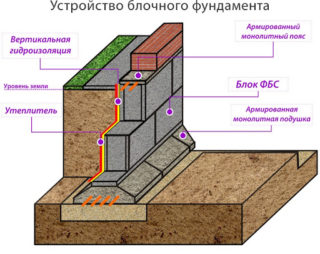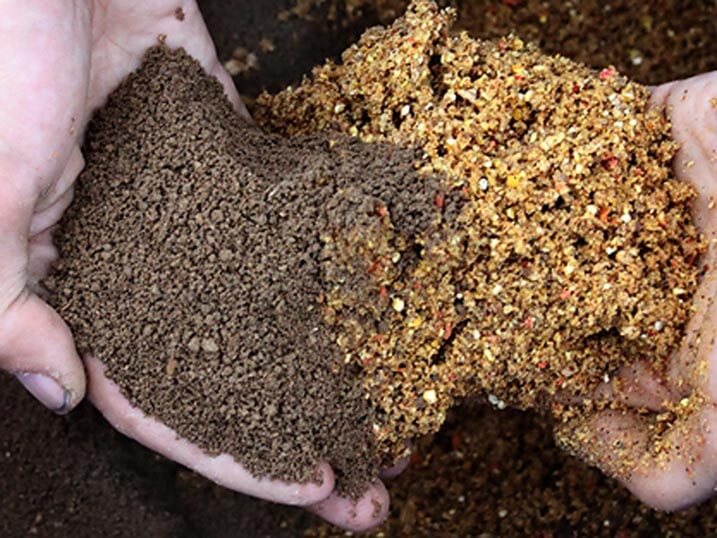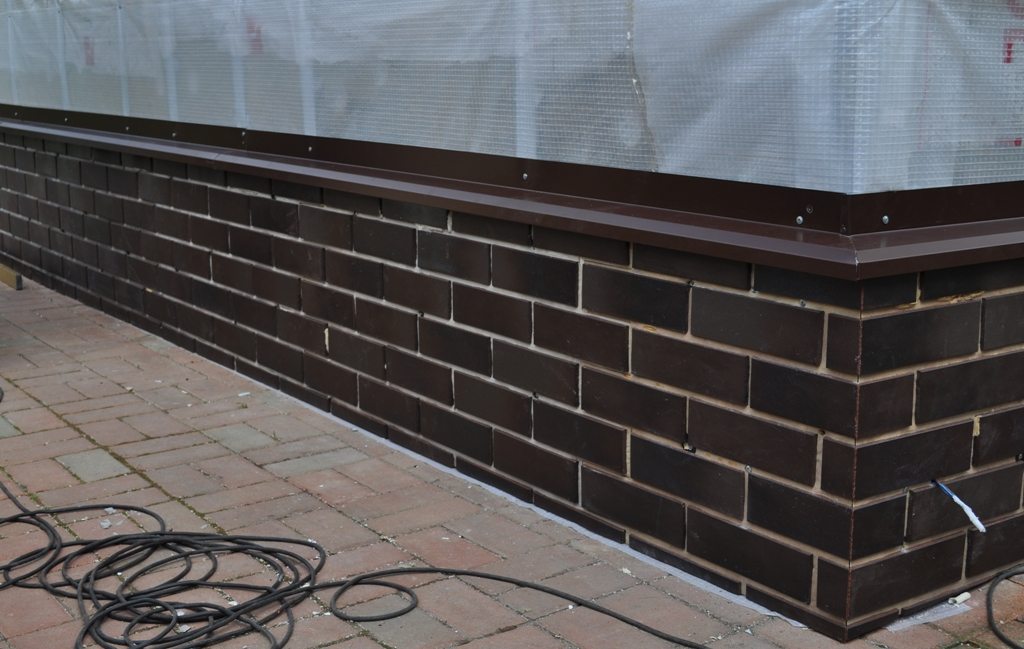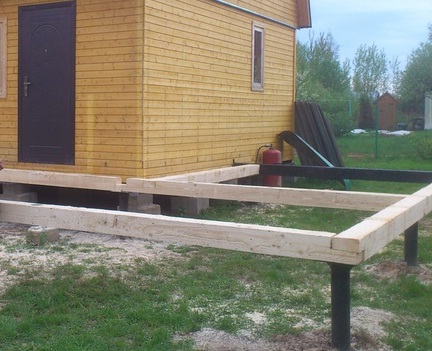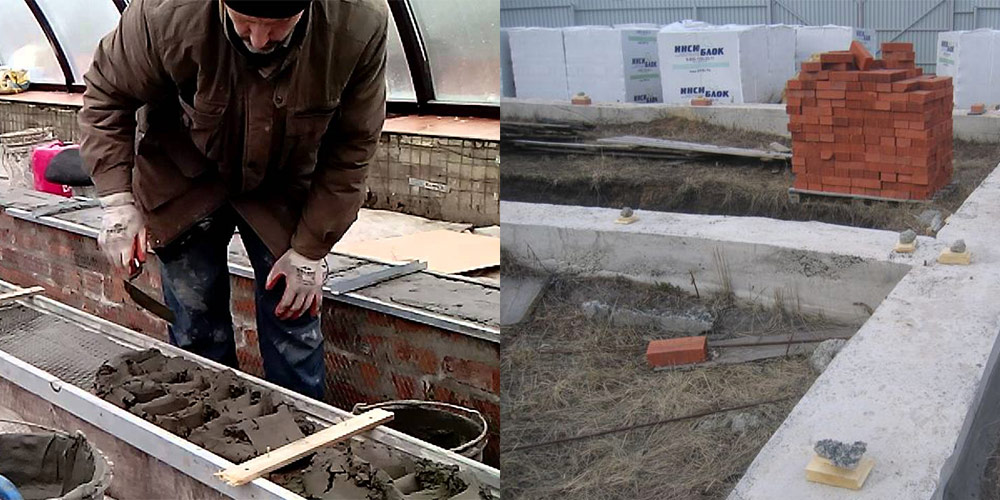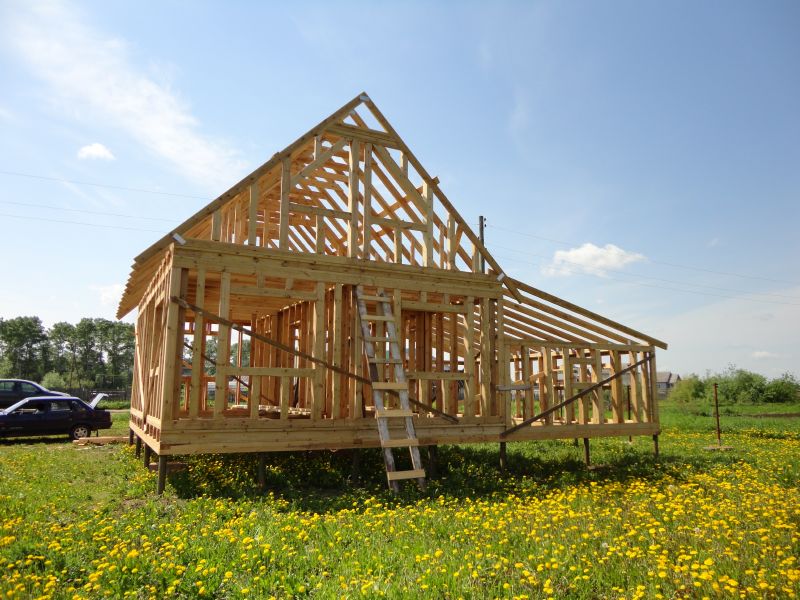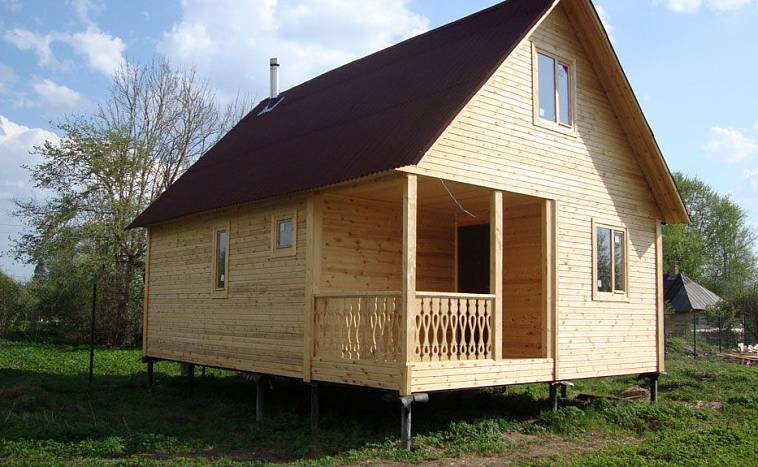Foundation construction is a complex and demanding engineering task. The durability and stability of the building on top depends on the quality of this structure. Concrete blocks, which the domestic industry produces in a wide range, will help speed up this process without losing strength. This type of concrete products has its own characteristics, strengths, weaknesses and scope.
Specifications and features of concrete blocks
High-quality concrete blocks for the foundation (24-4-6t) correspond to the following parameters:
- specific weight - 1800-240 kg / m³;
- concrete grade - B7.5- B15;
- moisture resistance - W2;
- the number of freezing cycles - 50;
- service life - from 75 years.
Small foundation blocks FBS 2-2-4 weigh up to 30 kg and have proven themselves in small-scale private construction. Due to their low weight, precast concrete elements can be laid by hand without expensive rental of loading equipment.
Varieties of concrete blocks
There are such types of FBS:
- Heavy. Designed to create powerful support systems of tape and plate type. Cast from cement grade M400-600 with the addition of crushed granite. Designed for maximum loads when placed in unstable and weak soils. Installation is carried out using mechanical lifting devices.
- Lungs. They are in demand in private construction to create an inexpensive foundation for lightweight structures such as sheds, gazebos, verandas and panel houses. Expanded clay, slag and other solid waste from various industries are used as a filler. Another type is hollow products, where the volume of the monolithic structure is from 60%.
Depending on the construction conditions, the blocks form a closed structure or are installed at intervals of up to 70 cm, creating a discontinuous foundation.
Dimensions and weight
You can also find blocks with the following parameters on sale:
- length - 1200, 800, 600 mm;
- height - 300, 400, 500 mm;
- width - 200, 400, 500 mm.
A good solution for arranging a columnar foundation is reinforced concrete in the form of a cube with sides of 400, 500 and 600 mm.
Installation features
For a foundation made of foundation blocks, the following assembly rules apply:
- compliance of the bearing capacity of the product with the characteristics of the soil;
- leveling and compaction of the earth at the place where the foundation elements are laid;
- compulsory arrangement of sand and crushed stone dumping, and, if necessary, a drainage system;
- sealing joints with cement or polymer mortar, where it is provided - by welding on embedded parts;
- dressing by half a stone of each subsequent level;
- strict adherence to the vertical of the masonry during the construction of the tape system.
After the installation is completed, it is advisable to insulate the foundation and create a layer of waterproofing. This will extend its service life and create more comfortable conditions inside the building.
Application area
The scope of FBS is not limited to the arrangement of house foundations. These are quite versatile products that are in demand in various areas of construction.
Blocks can be used to create objects like this:
- walls of basements, sheds, premises for animals, basement levels;
- supports for bridges, flyovers and other ground structures;
- cellars and vegetable stores;
- closed bunkers near areas of hostilities or potentially dangerous industrial facilities;
- landing areas for helicopters and small motor aircraft;
- tower-type buildings;
- temporary or permanent barriers along roads to block highways and pedestrian traffic zones.
The area of use of the blocks is limited only by the developer's budget, as well as by the mass of buildings installed on them.
Advantages and disadvantages of concrete blocks
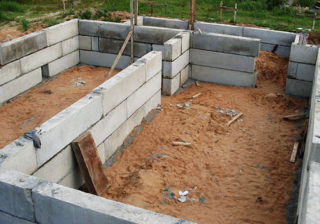
Quite often, the use of FBS turns out to be more profitable than the classical monolithic pouring, and for several indicators at once.
The popularity of RC blocks is due to the following aspects:
- Quick installation. There is no need to wait 28 days for the concrete to harden.
- Simplicity of calculations of material requirements. Standard dimensions facilitate the costing process.
- Almost complete absence of waste and construction waste.
- High strength. Blocks withstand horizontal and vertical loads without damage.
- Environmental Safety. Reinforced concrete products are made from derived natural materials.
- Durability. Even when installed in a chemically active environment, the units will last 100 years or more.
- A wide range of standard and additional elements.
The disadvantages include the large weight of the products and the inability to create a full-fledged monolithic structure out of them.
Almost every city has its own plant for the production of foundation blocks. The enterprises Stroymash, Betonstroy, JSC Chelyabinsk, Eurobeton, Stroybeton, ZZHBI4, Stroykomplekt have proven themselves to be excellent. Their products fully comply with GOST, are distinguished by high parameters of all quality criteria.

